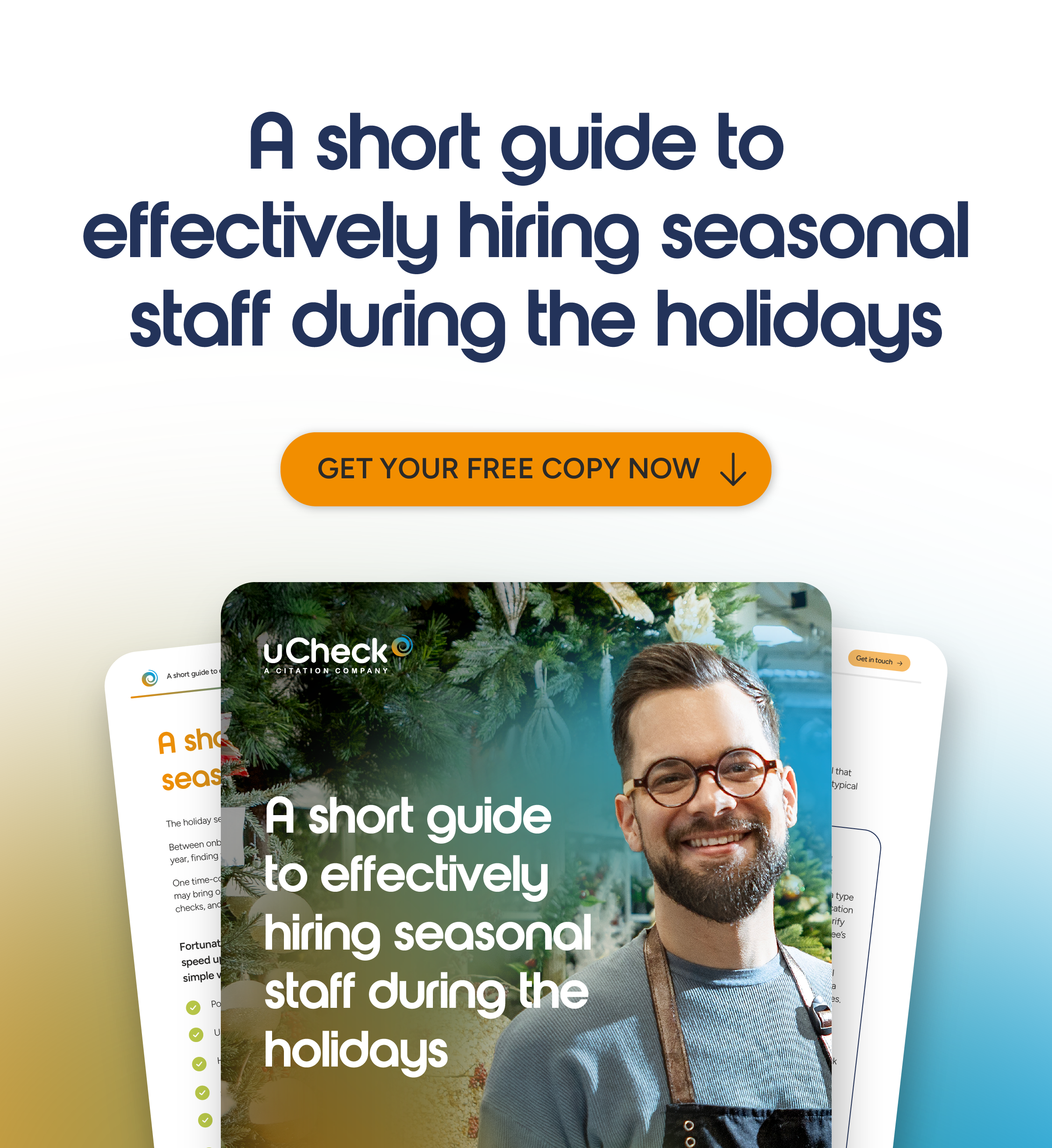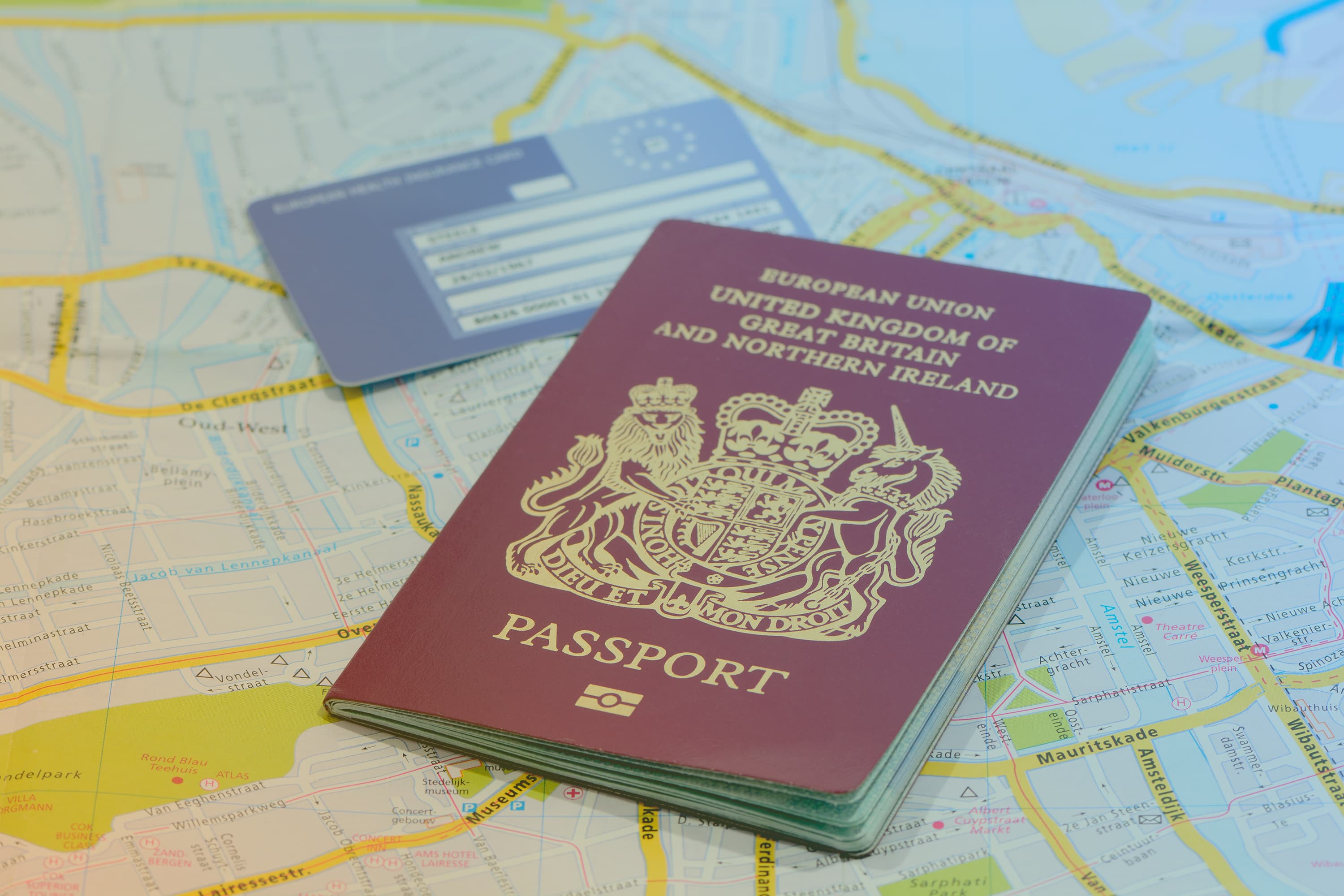When you think about criminal record checks the CRB springs to mind, or, more correctly now, the DBS (Disclosure and Barring Service). However, most employers requiring a check aren’t eligible for Standard DBS Checks or Enhanced DBS Checks as these are only intended for particular occupations that work with vulnerable groups, such as children or adults who are considered vulnerable.
Therefore, jobs such as teachers, nurses, and dentists would be eligible. However, what if your role is not one of these but you still want your applicant to be checked? Help is at hand with a Basic Criminal Record Check.
In this blog, we’ll cover the essentials of a Basic Criminal Record Check: what it reveals about someone’s criminal history, its implications for job opportunities, and how to apply for one.
What is a Basic Criminal Record Check?
A Basic Criminal Record Check, also known as a Basic Police Check, Basic Disclosure, or Basic CRB, is the lowest level of Disclosure. It’s not a basic DBS check, but a different level of criminal record check offered by another governing body.
Under The Rehabilitation of Offenders Act 1974, an unspent conviction is a conviction that hasn’t yet been declared spent. As a result, unspent convictions are usually defined as anything recent or serious.
What does a Basic Criminal Record Check show?
A Basic Criminal Record will include details of all current unspent convictions an applicant has on record in the Police National Computer (PNC).
An unspent conviction is a conviction that hasn’t yet been declared spent under The Rehabilitation of Offenders Act 1974. As a result, unspent convictions are usually defined as anything recent or serious.
How long does a criminal record last?
This is a question we get asked a lot. The simple answer? It depends on the nature of the offence and the sentence received. Some offences will never become spent, such as those which resulted in a prison sentence of over four years. However, for most offences, there’s a rehabilitation period after which the conviction becomes spent and is no longer disclosed on a Basic Criminal Record Check.
You can find more information about how long a criminal record lasts on the Gov website, which has a table outlining the rehabilitation periods for different sentences.
Can an employer request a Basic Criminal Record Check?
With the applicant’s permission, any employer can request a Basic Criminal Record to assist in the recruitment process. Jobs that require a Basic Criminal Record include:
- Contractors working on behalf of the council or housing associations
- Pubs and bars
- Cinemas
- Theatres
- Nightclubs
- Late-opening cafes
- Takeaways
- Village and community halls
- Supermarkets
If you require any help with eligibility for DBS Checks or the merits of Basic Disclosures, please contact us on 0300 140 0022 and we’ll be happy to talk you through it.
Can an individual request a Basic Criminal Record Check?
Yes, they can. Individuals living or working in England and Wales can apply for a Basic Criminal Record Check using uCheck’s simple online application form.
Applicants from Scotland will need to apply directly to Disclosure Scotland to get their Basic Individual DBS Check. If you’re living or working in Northern Ireland you will be able to obtain a Basic DBS on yourself from AccessNI.
However, it’s important to remember that any individual who requires a Basic Criminal Record Check for their job role won’t be covered by a basic check.
This is because the nature of their job will mean their employer has the right to see a more extensive version of their criminal record, which also includes spent convictions, as well as any cautions, warnings or reprimands that aren’t protected.
Applicants should always speak to their employer to confirm which level of check they need to have.
Can you get a job with a criminal record?
It’s a common question because over 11 million people in the UK have a criminal record. Having a Basic Criminal Record Check can be useful when applying for jobs, as it can demonstrate either a clear record, or allow the job applicant to be open and honest and explain any records they have to prospective employers.
However, a criminal record doesn’t necessarily mean you won’t be able to get a job. It all depends on the nature and severity of the offence you committed and its relevance to the role you’re applying for.
Will my offences show up on a Basic Criminal Record Check?
This depends. Criminal convictions become ‘spent’ after a certain amount of time. This means that, under the terms of the Rehabilitation of Offenders Act 1974, the conviction can effectively be ignored.
The length of time it takes for the conviction to become spent – known as the ‘rehabilitation period’ – depends on how severe the penalty was. Until this rehabilitation period is complete, the conviction is ‘unspent’.
Some jobs may require your potential employer to apply for a DBS Check on your behalf. If you have unspent convictions, they’ll show up on any level of Disclosure.
If you have spent convictions, they won’t appear on a Basic Criminal Record Check but will show up on a standard or enhanced DBS Check – unless they’ve been protected or filtered in line with current guidance.
‘Filtering’ is the term the DBS uses to describe the process which identifies and removes protected convictions and cautions so they’re no longer disclosed on a DBS certificate.
Enhanced or standard DBS Checks are required for jobs that involve working with children or vulnerable adults, or in positions of responsibility like law and accountancy.
Here are some examples of offences that will show up on a Basic Criminal Record Check if they are still unspent:
- Violent offences, such as assault, battery, and grievous bodily harm
- Sexual offences
- Drug offences, such as possession, supply, or production of drugs
- Theft, burglary, and robbery
- Fraud and dishonesty offences
- Driving offences, such as drink driving or dangerous driving
- Public order offences
To find out more as to whether DBS Checks show cautions, check out our blog.
Do individuals have to disclose their criminal record when they apply for jobs?
Yes. If you have any unspent convictions, you’re legally required to disclose them. If you don’t, then this could result in your dismissal further down the line.
When else would you need a Basic Criminal Record Check?
Apart from the pre-employment screening process, there are other specific circumstances in which an individual will be required to obtain a Basic Criminal Record Check.
Personal licence
A personal licence gives an individual the right to sell alcohol, often as the registered owner of a business selling alcohol.
When applying for a personal licence, applicants will be asked to obtain a Basic Criminal Record Check to confirm whether they have any unspent convictions.
The results of the check will be taken into consideration when deciding whether that person should be granted a licence.
Visa application
People looking to move, study or get married abroad may require a visa to do so. Visa applications will often ask for a disclosure of the applicant’s criminal record.
Individuals in these circumstances should apply for a Basic Criminal Record Check to provide to the embassy in question.
Volunteering
Even if you’re not being paid, some volunteer roles may require a Basic Criminal Record Check. This is particularly true for roles involving vulnerable people, such as working with children or the elderly.
For more information and useful tips, you can read our blog on DBS Checks for volunteers.
Housing applications
In some cases, housing associations or local councils may request a Basic Criminal Record Check as part of their tenant referencing process. This is to ensure the safety and security of other tenants, and to assess the suitability of the applicant for the property.
Adoption
In England and Wales, anyone wishing to adopt a child will need to undergo a thorough assessment process, which includes obtaining an Enhanced DBS Check with a barred list check. However, a Basic Criminal Record Check may also be required as part of the initial application stage.
Becoming a foster carer
Similar to adoption, those who wish to become foster carers will need to undergo checks to make sure they’re suitable to care for vulnerable children. This will usually involve an Enhanced DBS Check with a barred list check, but a Basic Criminal Record Check may also be a requirement.
Why are Basic Criminal Record Checks important?
Safer recruitment
They’re an important tool for safer recruitment. By filtering out candidates with unspent criminal convictions, employers can help to protect their staff, customers and business interests. This is particularly important in roles that involve working with vulnerable people, handling money or sensitive information, or representing the company in a public-facing capacity.
Legal compliance
In some sectors, employers are legally required to conduct Basic Criminal Record Checks on their staff. For example, anyone working in the security industry must have one. Failure to comply with these legal requirements can result in hefty fines and reputational damage.
Peace of mind
For both employers and employees, a Basic Criminal Record Check can provide valuable peace of mind. Employers can be confident that they’re hiring someone who is trustworthy and reliable, while employees can be reassured that their past will not be held against them unfairly.
How do I apply for a Basic Criminal Record Check?
So, now you know the answer to ‘what is a basic criminal record check’. And don’t forget that you can get your checks from us at uCheck. The quickest and easiest way to get checks as an employer is to use our online system for DBS Checks. Basic Criminal Record Checks take only a few minutes to request, and with the very latest processors, the result typically comes back in under 48 hours. A paper certificate confirming the result will follow a few days later.
We also offer checks for individuals, so why not take a look and find out more about how to apply for your check and what you’ll need?
For more details about our very latest Basic Disclosure processing system, contact us today. Similarly, if you would like information about our DBS/CRB rapid online system, please call us now on 0300 140 0022.







